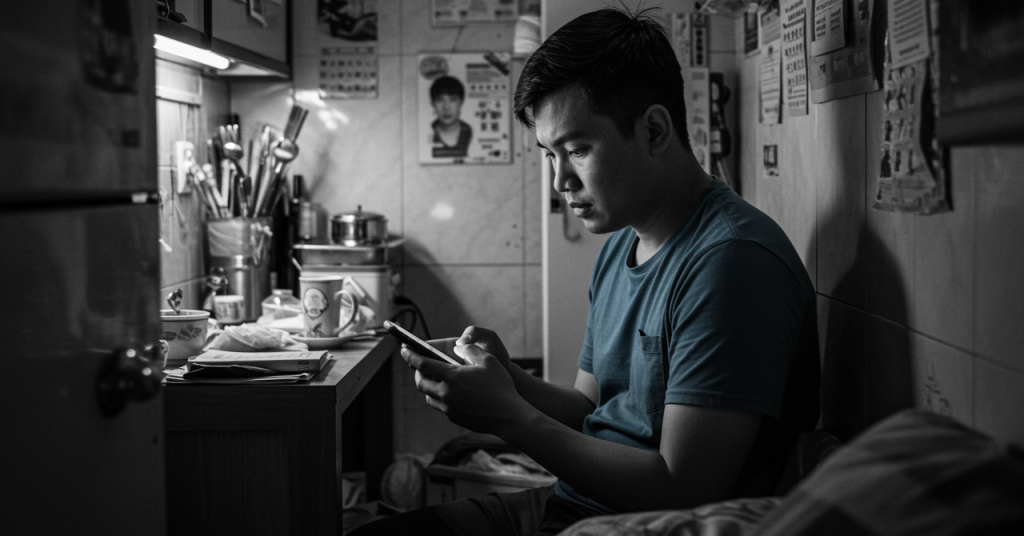Time to get real—OFWs need to have an Emergency Fund.
We all dream of a better life abroad, but the reality is this: one missed paycheck, one sudden illness, or one call from home can shake up everything. That’s why having an emergency fund isn’t just smart—it’s essential.
Whether you’re working in a factory in Taiwan, caregiving in a private home, or building a career overseas, here’s how to start building your safety net without sacrificing your day-to-day needs.

1. Create a Realistic Budget
Why it matters: You can’t save what you don’t track.
- Start by listing your monthly income and every peso you spend.
- Separate your expenses into:
- Needs: Rent, food, bills
- Wants: Shopping, eating out, subscriptions
- Try the 50-30-20 rule:
- 50% for needs
- 30% for wants
- 20% for savings and emergency fund
Tip: Use a budgeting app or spreadsheet to stay consistent—even simple notebooks work!
2. Prioritize Savings Like It’s Rent
Think of savings as a non-negotiable.
- Set aside a fixed amount right after payday.
- Automate transfers to a separate savings account if possible.
- Open a high-yield savings account in Taiwan or the Philippines to earn interest.
Pitfall to avoid: Don’t wait to “see what’s left” at the end of the month—pay yourself first.
3. Cut Unnecessary Expenses
You don’t need to deprive yourself—but you do need to be honest.
- Cook at home more often than eating out.
- Choose secondhand or budget options where possible.
- Swap subscriptions or limit online shopping to essentials.
Mindset shift: Every small cut is a peso gained for your future.
4. Maximize Your Remittances Wisely
Support your family—but set boundaries too.
- Use remittance services with low fees and good exchange rates.
- Schedule monthly transfers instead of sending money on demand.
- Have transparent conversations with family about budgeting and limits.
Pro tip: Teach your loved ones about saving too. Financial literacy goes both ways.
5. Invest in Your Future (But Start with the Fund)
Don’t skip steps.
- Once your emergency fund hits 3–6 months’ worth of expenses, explore:
- Mutual funds
- Government bonds
- Low-risk stocks or pooled investments
- Consider starting a small side hustle or online income stream.
Caution: Avoid investing big without an emergency fund—it’s your safety net, not your extra cash.
Why an Emergency Fund Is Non-Negotiable for OFWs
Having an emergency fund isn’t just about money. It’s about control, peace of mind, and being ready when life takes a turn.
Here’s what it protects you from:
- Job Loss: Over 100,000 OFWs were repatriated by the DFA in 2023 due to crises and layoffs.
- Medical Emergencies: Health issues—yours or your family’s—can drain your finances overnight.
- Debt Cycles: Without a buffer, many OFWs turn to high-interest loans or cash advance services.
- Family Needs: When an emergency happens at home, your fund lets you help without panicking.
Even the Philippine government acknowledges this need. Through the Emergency Repatriation Fund (ERF), OFWs are given support during crises, including shelter, travel, and reintegration. But that help isn’t instant—and it may not be enough. That’s where your own fund comes in.
Frequently Asked Questions
Q1: How much should I save in my emergency fund?
A: The general rule is to save 3 to 6 months’ worth of living expenses. For example, if your monthly expenses total ₱25,000, aim for at least ₱75,000 to ₱150,000. If your job is high-risk or temporary, save closer to 6 months.
Q2: Can I build an emergency fund while still sending money home?
A: Yes. It’s all about budgeting and setting limits. Treat savings like a monthly bill. If you can send money and still save even a small amount, you’re on the right track. Communicate with your family so they understand your goals.
Q3: Where should I keep my emergency fund?
A: Use a separate savings account—ideally one with a high interest rate and no easy debit access. Avoid storing it in your main bank account or in cash where it’s too tempting to spend.
Q4: When should I use my emergency fund?
A: Only for urgent, unexpected situations like job loss, medical emergencies, or urgent family needs. It’s not for shopping, vacation, or regular bills. Use it when no other funds or income sources are available.
Video: How to Build Your Emergency Fund? Ilang Buwan Ang Kailangan?
An emergency fund stands as a financial shield, offering protection against life’s unexpected challenges.
This episode breaks down its purpose, showing how it helps cover sudden expenses like medical emergencies, job loss, or natural disasters.
It explains the step-by-step process, from calculating monthly expenses to selecting the right savings multiplier based on income stability.
By placing funds in a safe and accessible account, individuals safeguard their finances and create a buffer for unpredictable events.
Final Thoughts
You didn’t go abroad just to survive. You went to grow, to provide, and to build a better life. An emergency fund isn’t just about “just in case”—it’s about being in control, even when the unexpected comes knocking.
Start small. Stay consistent. And remember: your future deserves a backup plan.
